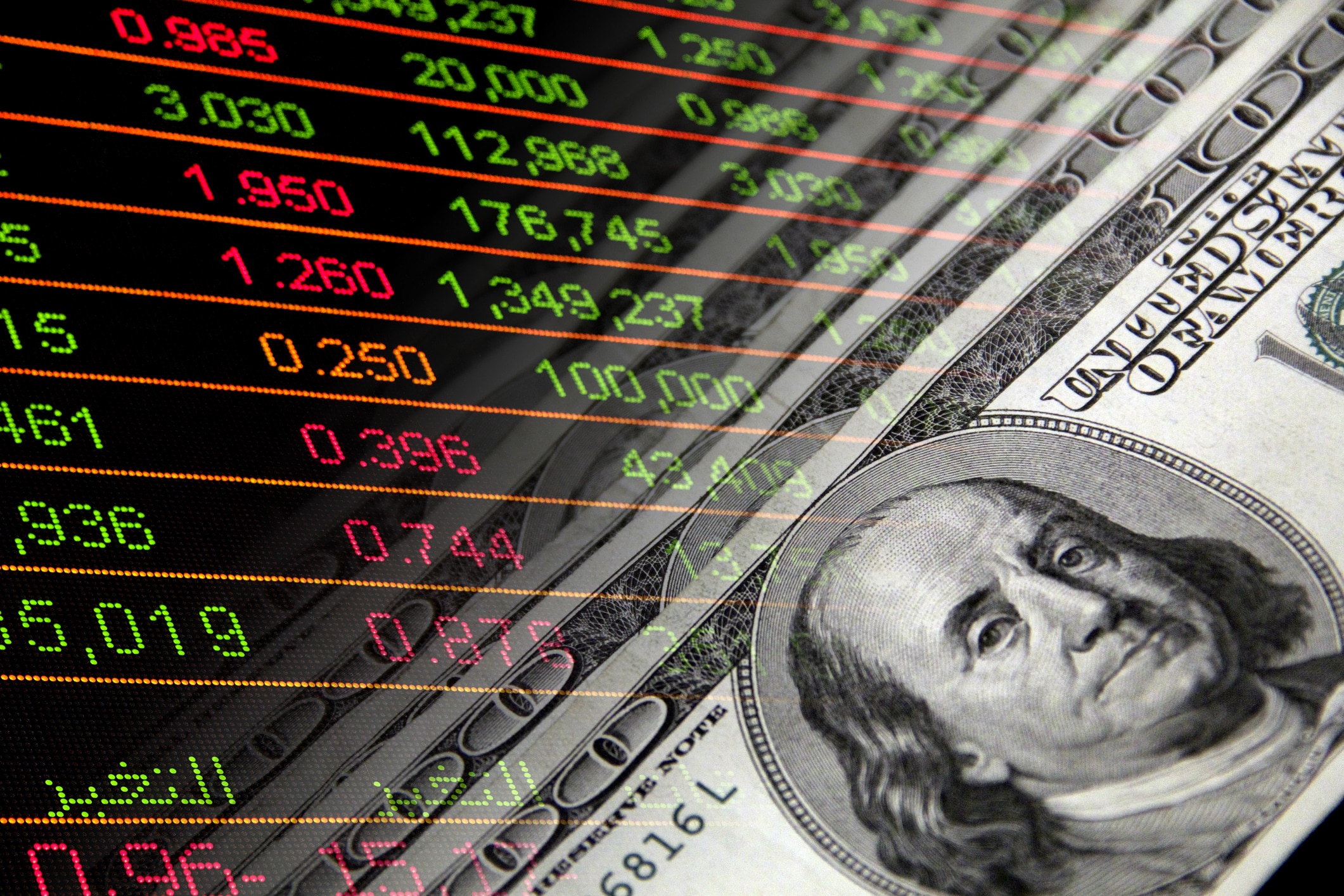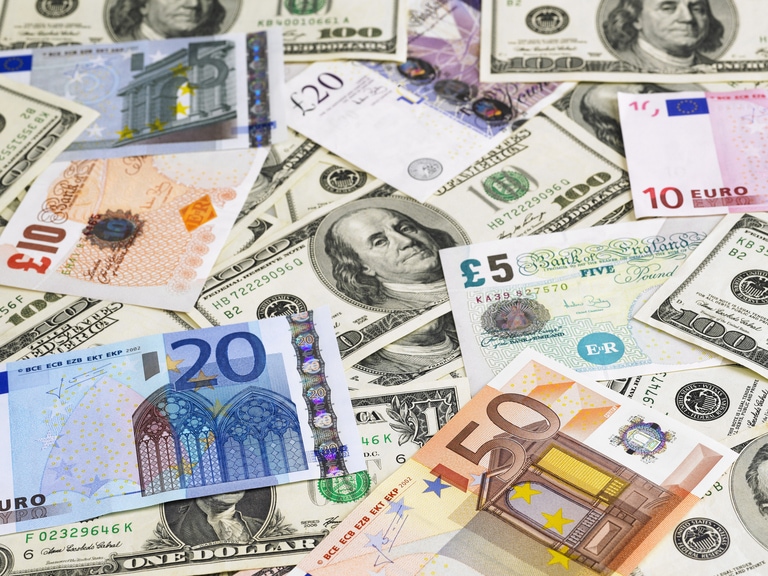It’s been a day of two halves for European markets today with both the FTSE 100 and CAC 40 making new record highs this morning, before slipping back from those peaks during the afternoon session.
Europe
The catalyst for the pullback was a US PPI report which punched a hole in the speed of the disinflation narrative that has driven this week’s stock market gains. It was a timely reminder to markets that while inflation may have peaked, the move lower in prices isn’t going to be a straight line, and that there are likely to be many twists and turns on the way. Comments from Cleveland Fed president Loretta Mester that she saw a compelling case for a 50bps move at the last Fed meeting also raised a few eyebrows, prompting speculation as to whether anyone else on the FOMC was leaning in a similar direction.
Having been at the forefront of takeover speculation from Abu Dhabi’s First National Bank, Standard Chartered bank's full-year numbers have ended with a disappointing quarter after Q4 adjusted pre-tax profits came up short of expectations, due to a $344m impairment charge in relation to China real estate. For the full-year statutory pre-tax profits were still positive coming in at $4.76bn, a 13% increase on 2021, with profit attributable to shareholders rising to just shy of $3bn, pushing the shares higher on the day. Despite this disappointment the bank says it intends to buy back $1bn in shares, while upgrading its guidance for 2023, and 2024. The bank made no mention of the interest from FAB, with CEO Bill Winters insisting in comments earlier this year that the bank was performing well enough all by itself.
It’s also been a good day for Germany’s Commerzbank, after saying they expect profits this year to be significantly above target, helped by the higher rate environment that has proved so damaging to their fortunes over the past decade. The bank did increase its loan-loss provisions as a result of the higher rate environment to €222m, but said that the strong revenue performance has meant that it has been able to post its highest net profit in more than 10 years at €1.4bn.
British Gas owner Centrica has seen its share price more than double since its October lows, with the energy utility company upgrading its profit guidance twice in the last three months. Today’s full-year results have seen profits come in at £2.8bn, a big jump from £392m in 2021, and also above expectations, on revenues of £33.64bn, a big jump from the £27.7bn in revenues from the previous year. While its gas and electricity generation business accounted for the bulk of the profits, its British Gas services business slipped to an adjusted operating loss of £9m, a sharp decline from the £121m profit made in 2021. The company said it would pay a final dividend of 2p per share as well as extend its buyback by an additional £300m. Total tax paid for the year rose to over £1bn.
Somewhat predictably the jump in profits has provoked criticism especially given the unacceptable behaviour that saw customer homes broken into to install pre-payment meters, but it should also be pointed out that the £1bn tax windfall for the UK treasury wouldn’t have been possible without these profits. The partial reopening of the Rough gas storage facility would also have taken longer to achieve without the additional revenues that have now made it more cost effective. Future investments in facilities such as these, given that it is only operating at 20% of capacity, will be needed in the future in order to help drive down power prices further. All of this nonsense about windfall taxes diverts attention from the real problems facing the UK economy, that of energy security, and it is here that Centrica could probably contribute more to the debate as it continues its discussions with the UK government about reopening Rough fully.
Vodafoneshares have continued their recent gains on reports it is exploring options for the sale of its Vodacom unit, as it looks to improve performance, but also reduce its high debt levels. BT Group is also building on the gains it put on yesterday.
US
Having seen a positive session yesterday on expectations that the US economy can absorb much higher rates as economic activity rebounds US markets have opened sharply lower, after US PPI showed inflation could take quite a bit longer to subside in the coming months.
Not only did January PPI come in much higher than expected on both month on month and year on year, but December also saw upward revisions, on both headline and core. Year on year January PPI came in at 6%, down from 6.5% and well above forecasts of 5.4%, while core came in at 5.4%, also above forecasts of 4.9%.
Weekly jobless claims also continued to remain low, slipping back to 194k pointing to ongoing tightness in the US labour market, pushing yields and the US dollar higher, on the prospect that we could see rate hikes extend further into 2023, well into Q2, and possibly Q3.
On the earnings front Paramount Global shares have fallen sharply after posting Q4 revenues of $8.13bn, slightly shy of expectations with direct-to-consumer revenue of $1.4bn. Paramount+ added 9.9m new subscribers during the quarter taking the total to 56m globally. Pluto, which is its free ad-supported service, had 78.5m users. For Q1 Paramount said it expects to post an EPS loss due to a charge of $1.3m due to integration costs of Showtime and Paramount+. In response, subscription prices are expected to rise by $2 a month for the premium tier.
Roku shares on the other hand have risen after the small streaming platform reported Q4 numbers that were better than expected. Q4 revenues came in at $867m, while losses came in at $1.70 a share. Active customer accounts also beat expectations at 70m, with the company projecting net revenue for Q1 of $700m, above consensus of $687m.
FX
The US dollar has continued to edge higher after today’s higher than expected PPI numbers, and comments from Cleveland Fed President Loretta Mester who said that she saw a compelling case for a 50bps rate move at the last FOMC meeting, raising the question as to whether she was alone in thinking that. Next week’s minutes are likely to shed some further light on that, but even if there wasn’t a compelling case for other members then, surely the data since then suggests that there might be a stronger case for a 50bps now.
Among the worst performers has been the Australian dollar after unemployment jumped sharply to 3.7% from 3.5%.
The pound has continued to underperform, losing further ground against the euro as well as the US dollar as markets continue to price out the prospect of a more aggressive central bank reaction function to sticky inflation pressure. The sterling weakness of the past couple of days speaks to a market that is underestimating the number of further rate increases that could be coming down the line, which is helping to push EURGBP back towards the highs this month.
Commodities
Crude oil prices have continued to chop around as uncertainty over China demand and high inventory levels in the US helps to keep a short-term lid on prices. One thing this morning’s PPI numbers showed us was that a lot of the stickiness in prices we saw in December and January was caused by higher gasoline prices, which rose by 6.2% in January. Who knows where prices will go next but given how price sensitive consumers are there could be scope for further inventory builds and some demand destruction.
Gold prices have slipped to new six-week lows, as further upward pressure on yields and a stronger US dollar has weighed on prices.






